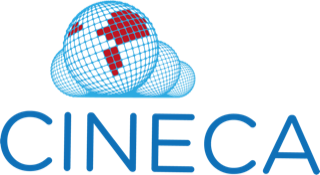To help researchers learn about finding, accessing and analysing sensitive human data in a federated fashion, the CINECA project has developed a learning pathway. In this blog, we describe why federated data analysis is important, what is included in the learning pathway and how it can be accessed.
Read MoreAuthors: Nicola Mulder (UCT), Mamana Mbiyavanga (UCT), Saskia Hiltemann (EMC), Vera Matser (EMBL-EBI), Marta Lloret Llinares (EMBL-EBI)
In this deliverable document, we report on the activities in task 6.4 - Training Programme, describe the CINECA training activities that took place in months 25-36 of the project and provide the Training Plan for the final year.
The CINECA training programme aims to train people within the CINECA consortium as well as external users. Different approaches have been employed, including face-to-face and online courses, hackathons, training videos and staff exchanges. While we waited for CINECA products to be completed, many of the training efforts for the year again focused on internal learning opportunities and knowledge exchanges, but some externally facing events were held to disseminate outputs. All the training and outreach events continued to be heavily impacted by COVID-19, which removed our ability to hold face-to-face workshops and staff exchanges. The staff exchanges were suspended and replaced with virtual meet-ups.
https://doi.org/10.5281/zenodo.5795482
The EUCAN Cluster consists of seven projects (CINECA, EUCANCan, EUCAN-Connect, euCanSHare, iReceptor Plus, and ReCoDID) that received funding under the same Horizon 2020 call, SC1-BHC-05-2018.
This document provides a high-level overview of each project in the cluster.
Read MoreThis video provides an Overview of the FAIRsharing.org by Allyson Lister as part of the CINECA “How FAIR are you” webinar series and hackathon.
Read MoreThis month’s blog was written by Nicola Mulder, Professor and head of the Computational Biology division at the University of Cape Town, and Principal investigator of H3ABioNet, a Pan African bioinformatics network for H3Africa, and Mamana Mbiyavanga, a Bioinformatics Scientist and PhD student at UCT, who contribute to a diverse range of CINECA work packages. This blog is less of a technical report in our Global Alliance for Genomics and Health (GA4GH) standards series than the previous 4, and more of a report on how WP6 - ‘Outreach, training and dissemination’ is contributing to developing better implementation of GA4GH standards.
Read MoreThis video describes the FAIRplus fairification wizard by Fuqi Xu (EMBL-EBI) as part of the CINECA “How FAIR are you” webinar series and hackathon.
Read MoreDeliverable D6.2a
Training Programme - M12
Authors: Nicola Mulder (UCT), Mamana Mbiyavanga (UCT), Saskia Hiltemann (EMC), Vera Matser (EMBL-EBI)
In this deliverable document, we report on the activities in task 6.2a - Training Programme and describe the CINECA training activities in the first 12 months of the project.
In the first phase of the CINECA project, many of the training efforts are focused on internal learning opportunities and knowledge exchanges. There are many interdependencies between the different CINECA work packages, so to this end we have set up a staff exchange program. For training interventions targeted at a broader audience, we have set up a webinar series, providing online learning interventions. Feedback from these webinars is collected and is used to further increase the utility of the webinars going forward. We have disseminated a survey to identify the training needs of CINECA’s stakeholder community. Additionally, we ran our first stakeholder engagement session at the International Hundred Thousand Cohorts Consortium (IHCC) Meeting in Reykjavik, Iceland in April 2019. During this session, we gathered feedback on the challenges of managing cohorts and cohort data harmonisation. More extensive face-to-face workshops and training events are being planned for 2020.
https://doi.org/10.5281/zenodo.3952621
Read More






